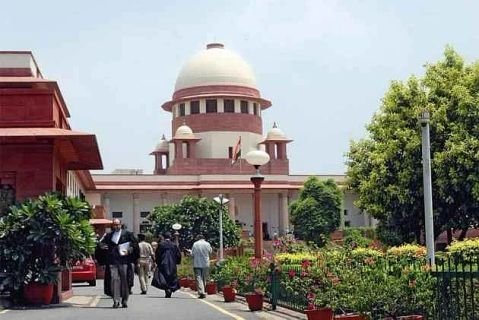The Supreme Court headed by Chief Justice of India Sanjiv Khanna will hear the petitions challenging the Waqf (Amendment) Act, 2025 on April 16, 2025. The matter will be heard by a three-judge bench comprising Justices Sanjay Kumar and K V Vishwanathan. The main petition filed by AIMIM MP Asaduddin Owaisi has argued that the law is "patently arbitrary, promotes discrimination on the basis of religion, violates the Shariat Act and deprives the Muslim community of the right to manage its religious institutions".

Key details:
Composition of the bench: The bench will be headed by CJI Sanjiv Khanna and will comprise Justices Sanjay Kumar and K V Vishwanathan.
Hearing date: The hearing is scheduled for April 16, 2025.
Main petition: The main petition has been filed by AIMIM MP Asaduddin Owaisi.
Other petitioners: Additional petitions have been filed by various bodies including AAP MLA Amanatullah Khan, DMK's A Raja, Muslim clerics' organisation Samasta Kerala Jame-Iyyathul Ulama, All India Muslim Personal Law Board (AIMPLB) and Association for Protection of Civil Rights.
Central government's stand: The Centre has filed a caveat in the Supreme Court, requesting a hearing before passing any order on pending writ petitions challenging the Act.
Petitioners' arguments: The petitioners argue that the amendments "impose arbitrary restrictions on waqf properties, undermine the religious autonomy of the Muslim community and violate the Shariat Act." They also argue that the Act discriminates against Muslims by imposing restrictions that do not exist for other religious endowments, which violates Article 14 (right to equality) and Article 300A (property rights) of the Constitution.
Background: The Waqf (Amendment) Act, 2025 received the Presidential assent on April 5, 2025, and came into force on April 8, 2025. The Act aims to amend the Waqf Act, 1995, to address the regulation of waqf properties, which are properties dedicated exclusively for religious or charitable purposes under Islamic law.
Additional context:
Opposition and protests: The passage of the Waqf (Amendment) Bill was met with strong opposition in Parliament and protests were held in various parts of the country. Opposition parties and Muslim organisations have criticised the Act as "anti-Muslim" and "unconstitutional".
Legal precedents: The petitioners have cited previous Supreme Court judgments that handing over the control of religious properties to secular authorities violates religious and property rights.
Government's defence: The government has defended the Act as a “landmark reform” aimed at benefiting the minority community by bringing transparency and accountability in the management of waqf properties.
Conclusion: The hearing in the Supreme Court on April 16, 2025 will be a crucial moment in the legal challenge against the Waqf (Amendment) Act, 2025. The case is expected to address the constitutional validity of the Act and its impact on the religious and property rights of the Muslim community.